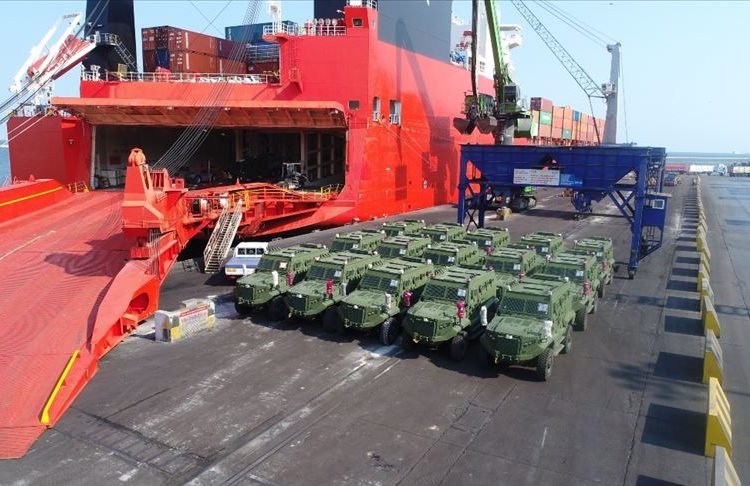Levent Kenez/Stockholm
Turkey has speeded up the approval of bilateral defense cooperation agreements with African countries in order to increase arms sales to the continent, which it has viewed as a target market for defense industry exports for some time.
The Turkish government attaches importance to signing these routine agreements before sales so that confidential information is protected, copyright is guaranteed, the legal framework is determined, the visits of authorized personnel are based on an official justification and the technical service costs are covered by the recipient country.
An agreement on defense industry cooperation with Uganda will be approved by the Turkish Parliament next week, while an agreement with Nigeria, which was signed at the end of October, was sent to the relevant parliamentary committee to start the ratification process. Debate on the agreement just five months after it was signed is considered an extremely short period of time given the fact that bilateral agreements can wait for years to be ratified by parliament. New unmanned aerial vehicle (UAV) sales are known to be a factor in accelerating the approval process.
Nordic Monitor has learned that the government has sent new defense cooperation agreements to the speaker’s office for the start of the approval process.
Following Turkish President Recep Tayyip Erdoğan’s four-day visit to West Africa in October, Nigeria announced that it would purchase Turkish drones to combat Boko Haram. Angola and Togo, the other countries on the trip, also expressed their intent to buy UAVS and armored vehicles from Turkey. Turkey has already signed similar defense industry cooperation agreements with these two countries. BMC, Turkey’s leading armored vehicle maker, which is owned by businessmen close to Erdoğan, has been experiencing financial difficulties. Erdoğan is lobbying heavily for the sale of BMC products during his trips abroad.
In 2021 Turkish media announced that the Gambian army was interested in the Bayraktar TB2 unmanned combat aerial vehicle (UCAV) produced by Turkey. Turkey’s military drones, which have made a name for themselves in recent years in several battle zones such as Libya, Syria, Nagorno-Karabakh and now in Ukraine, are produced by Erdoğan’s son-in-law Selçuk Bayraktar.
An important factor for the success of Turkey’s initiatives to increase defense exports in recent years, also called “drone diplomacy,” lies in Turkey’s concentration on commercial targets rather than how and against whom these weapons are used. Turkey does not have a long export approval process for defense products, unlike the US and the European Union.

For instance, Ethiopia used a Turkish drone in January in an attack that killed at least 59 civilians sheltering in a school in Tigray, according to an analysis by The Washington Post on February 7, 2022. Weapon remnants recovered from the site of the strike by aid workers showed internal components and screw configurations that matched images of Turkish-made MAM-L munitions released by the weapons manufacturer. The MAM-L pairs exclusively with the Turkish-made Bayraktar TB-2 drone.
Turkey had to move its embassy in the Ethiopian capital of Addis Ababa to Kenya after Tigray militia members threatened to target it.
Turkey also has signed bilateral agreements with Tanzania, Sudan, Benin and Côte d’Ivoire to cooperate in industrial production, procurement and maintenance of military and defense materiel as well as technical and logistical support, information sharing and research in the field.
According to Turkey’s 2021 export figures announced by the Turkish Exporters Assembly last December, Turkey’s arms sales reached a record level, with the biggest increase to African countries. The figures could be interpreted as the successful outcome of a strategy pursued by the government of President Erdoğan to make Africa a new arms market for Turkey as well as its aggressive marketing efforts for companies that belong to businesspeople close to him.
In 2021 Turkey exported $3.224 billion in defense products, an increase of 41.5 percent compared to 2020. For the first time, the defense sector had a 1.9 percent share of Turkey’s total exports.
Compared to 2020, Turkey increased its defense exports to the African continent by 560 percent in 2021, from $82 million to $461 million. Africa, thus, ranks third in Turkey’s defense exports, following North America ($1.15 billion) and the Commonwealth of Independent States ($455 million).












